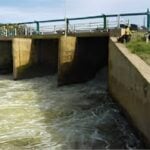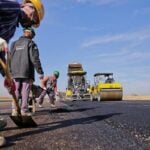The Africa Make Big Polluters Pay (MBPP) Coalition has wrapped up a two-day training for journalists across the continent on climate change reporting, with a call for sustained coverage of the climate crisis from an Afrocentric perspective.
The coalition also renewed its call for just climate reparations for Africa and the Global South, which bear the most brunt of the climate crisis.
The virtual event, which was held between April 22-23, featured no fewer than 51 climate journalists from at least eight African countries, in addition to resource persons from Nigeria, Togo, The Gambia, the United States and India.
Themed, “Communicating Climate Change: Realities, Impacts, and the Need for Action,” the training was organised by the MBPP Coalition and hosted by Corporate Accountability & Public Participation Africa (CAPPA) in partnership with Corporate Accountability (CA) with a focus on equipping journalists with the knowledge and skills necessary for promoting environmental justice and accountability.
Day one featured presentations and remarks by leading environment and climate change experts, including the Executive Director Health of Mother Earth Foundation, (HOMEF), Corporate Accountability’s Managing Director Elvis Méndez, Executive Director of the Centre for Environmental Justice, Togo Kwami Kpondzo, CAPPA’s Executive Director Akinbode Oluwafemi and CAPPA’s Senior Climate Change Programme Manager, Olamide Martins.
The training also addressed the disparities in contributions to global climate change, particularly between the Global North and African nations.
Dr Bassey, whose presentation was titled “Loss and Damage Fund, Climate Finance: Where is Africa,” harped on the importance of climate finance for both reducing emissions and helping African communities adapt to the changing climate.
He explained that climate change impacts are tackled in two ways: mitigation and adaptation.
Elaborating on the historical context, Bassey said: “For centuries, Africa has been stripped of resources without reaping the benefits.”
Read Also: CAN President calls for national healing
As discussions on climate adaptation and financial models continued, Dr. Bassey reiterated the urgent need for international cooperation and support for African nations in their fight against climate change.
“We must ensure that those most affected are given the support and resources needed to adapt and thrive,” he said, calling for a collaborative effort to secure a sustainable future for the continent and beyond.
Oluwafemi, the Executive Director of CAPPA, explained that journalists play a crucial role in curating the climate change message.
“We need journalists to be able to educate the people to mount pressure on policymakers and government to be able to take appropriate action, as well as mobilise communities, to build communities of resistance to the destruction of climate change and our world,” Oluwafemi added.
Day 2 featured media-focused sessions by Kristin Salvage, Director of Media and Press at CA, and Esttappen S, Communications Coordinator at Demand for Climate Justice (DCJ).
In his closing remarks, Dawda Cham, Deputy Executive Director of Household Disaster Resilience Project (HELP-Gambia) urged journalists to expose the realities of the climate change issues and also to put to practice at their various organisations what they have learnt.
WATCH TOP VIDEOS FROM NIGERIAN TRIBUNE TV
- Let’s Talk About SELF-AWARENESS
- Is Your Confidence Mistaken for Pride? Let’s talk about it
- Is Etiquette About Perfection…Or Just Not Being Rude?
- Top Psychologist Reveal 3 Signs You’re Struggling With Imposter Syndrome
- Do You Pick Up Work-Related Calls at Midnight or Never? Let’s Talk About Boundaries






